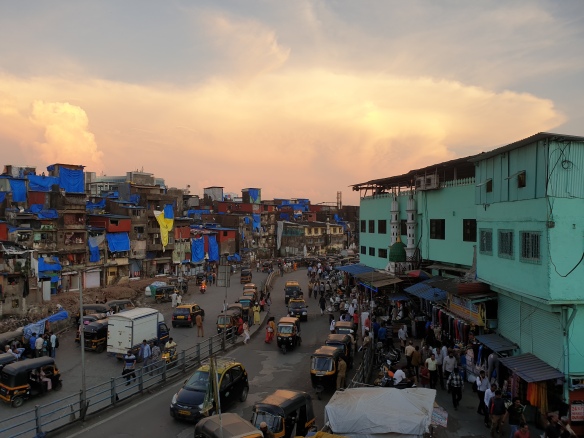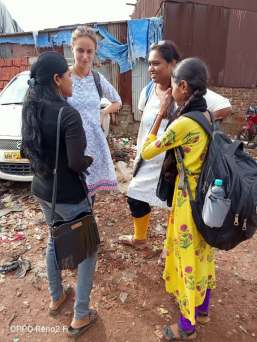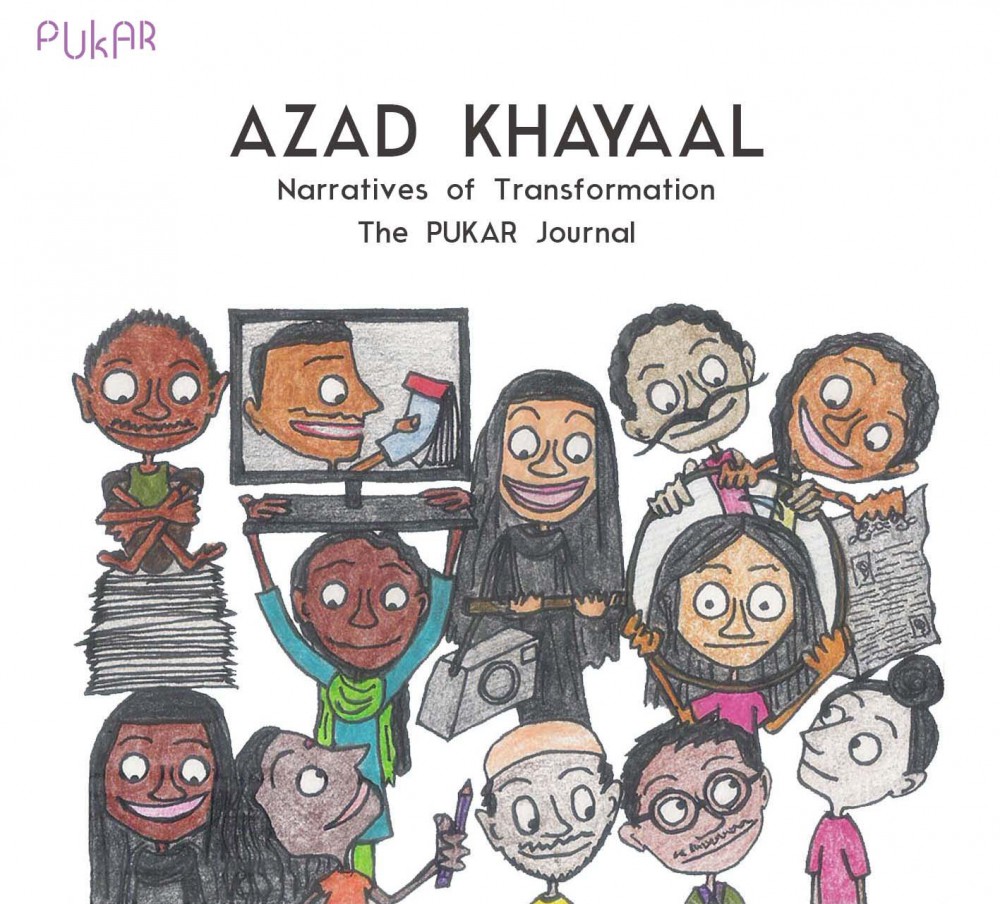A French intern has followed PUKAR’s Journey Towards Dignity (JTD) team for 4 months and shares her main learnings.

PUKAR’s Journey Towards Dignity (JTD) is a project which aims at empowering adolescent girls from marginalised communities in Mumbai by providing them with comprehensive training on critical issues – from gender identity to sexuality – so that they can make their own informed choices about their body. This year, PUKAR engages directly with 300 girls – aged 10 to 20 years-old – from seven different communities in Mumbai, mainly in slum areas.
As an intern at PUKAR and having my own passion for issues related to gender equality and sexual and reproductive health and rights (SRHR), I was particularly eager and curious to understand PUKAR’s JTD Programme. Especially in the Indian context, I was aware of how sensitive and difficult to tackle these issues are, and I was therefore keen to discover the methodology used by PUKAR to work with young adolescent girls.

Visiting field with JTD team
Since September, I have been following the JTD team through the preparation phase of the project: survey design, enrollment of beneficiaries, engagement with beneficiaries’ parents, etc. I also got the opportunity to accompany the JTD team on-field to conduct the baseline surveys with all the programme participants and supported them through the first half of the training programme during which we addressed the questions of identity, puberty, menstruation, the reproductive system, and gender-based violence.
Going “on-field” with the JTD team first helped me understand the socio-economic and cultural context of the communities PUKAR works with, confronting me to new realities in Mumbai. The majority of the beneficiaries of the programme come from low-income, minority communities and live in slum areas. In addition to the numerous challenges faced as adolescent girls, these girls also have to cope with context-specific difficulties: lack of space and privacy, lack of financial means to access adequate menstrual hygiene management and healthcare, lack of access to safe sanitation facilities, lack of access to information, etc. All these challenges make adolescent girls from marginalised communities particularly vulnerable and yet often neglected by policies and development programmes; and this is the reason why PUKAR decided to focus on this particular population.
After several weeks following the JTD team on the field, from Dharavi to Mandala and Kaulabander, I have observed and learned a lot from the way the team works with adolescent girls. Based on this experience, here are some of the key success factors I have identified:
- Create a safe and free space to encourage the girls to open up and share their queries and experiences – without any judgement. This implies establishing a relationship of trust between the facilitators and the girls, but also between the girls themselves.
- Horizontal approach: in order to create this safe space, the facilitators must overcome the vertical dynamic teacher/students with the adolescent girls, following a pedagogy based on mutual learning.
- Step-by-step approach: Because addressing directly the most sensitive and taboo issues would lead to resistance, the team generally starts with games and creative, self-reflective activities and then progressively addresses sensitive topics using context-adapted teaching material and interactive discussion.
- Enhancing Critical Lens: By asking innocent questions and through interactive activities – such as role-playing games – JTD team help girls become aware and question critical issues such as gender roles, gender violence and inequalities by reflecting in their own lives.
- Contextualisation: It is crucial to adapt the training content to the girls’ context and provide them with concrete tools and knowledge to help them deal with the difficulties they face in their everyday lives. The fact that the facilitators themselves come from the communities allows a deeper understanding of the socio-cultural context and help them connect with the girls’ challenges.
- Make it fun and entertaining: Games and creative activities help break the traditional framework of the school. It is a useful way to help the girls relax and proves to be an efficient way to address sensitive issues indirectly. Additionally, enhancing girls’ creativity can truly help them gain self-confidence.
- Strong Monitoring: Pre and post-survey for every session enable the team to keep track of the transmission of knowledge to the beneficiaries. If required, the team goes through important concepts again during a review session and in case any girl drops out, the team actively follows up by getting in touch with the girl to understand the reasons and if necessary they approach parents too.
- Active engagement of key stakeholders: Challenging existing power structures through girls empowerment programmes in conservative communities can lead to a backlash against the adolescent girls, and the removal of the girl from the programme. In order to mitigate this risk, the engagement of key stakeholders is crucial, especially parents and community leaders. This implies explaining them the programme and why it is important, in order to obtain their consent and even their support. It is necessary to guarantee the sustainability of the project and avoid resistance in the communities we work with.
- Upcoming community leaders – Changemakers – After the training, few girls from each community are selected as volunteers and are further trained to become changemakers for the next year. Their role is to help the JTD team conduct the workshops and become role models for younger girls, as they are confident, knowledgeable and empowered. Finally, the young leaders contribute to allaying fears from the communities – who can see the positive impact the programme had on the changemakers – and help ensure the sustainability of the programme.
Victoire Ambeza, intern at PUKAR and
Master student in International Development at Sciences Po Paris (PSIA)
